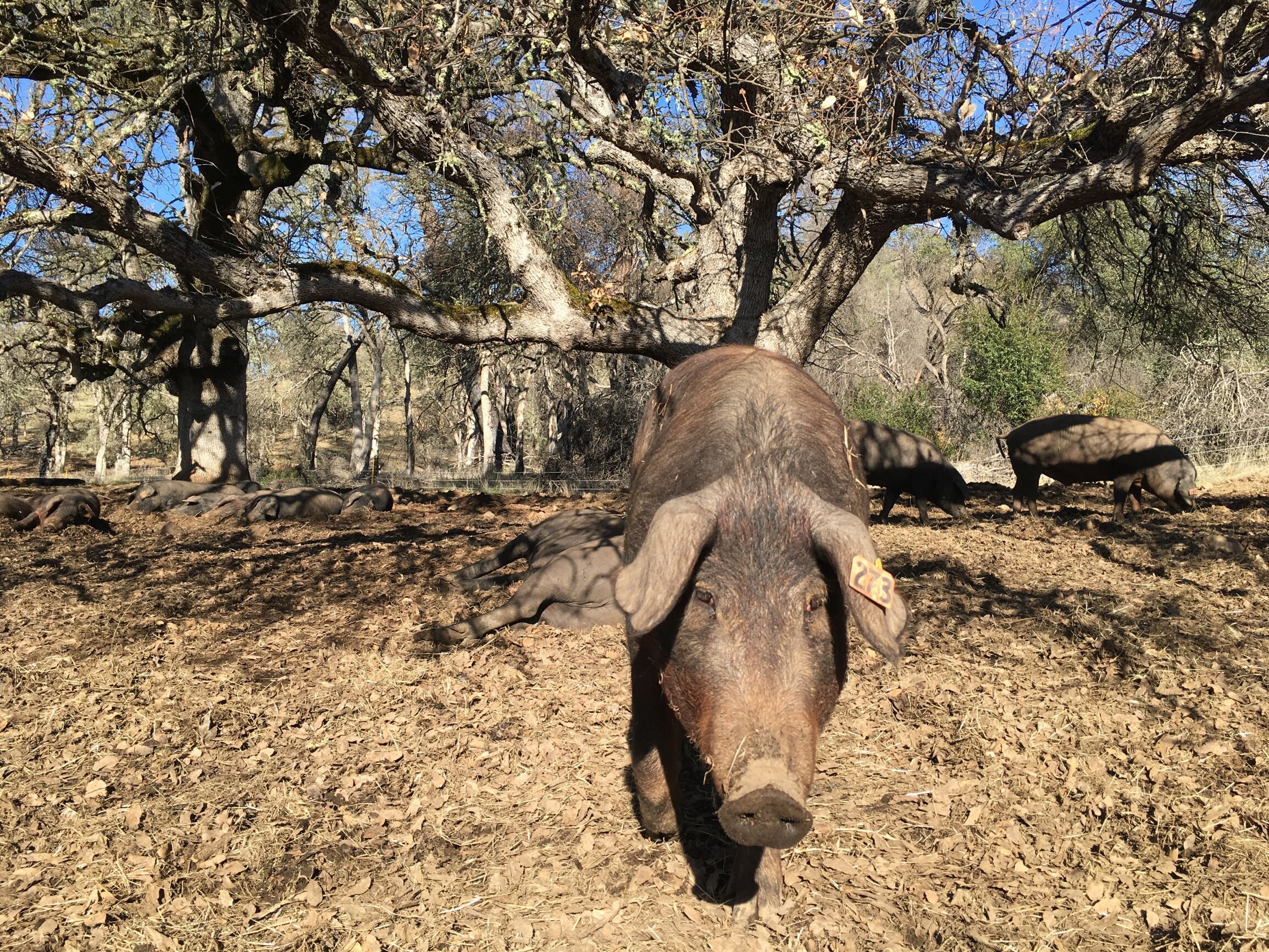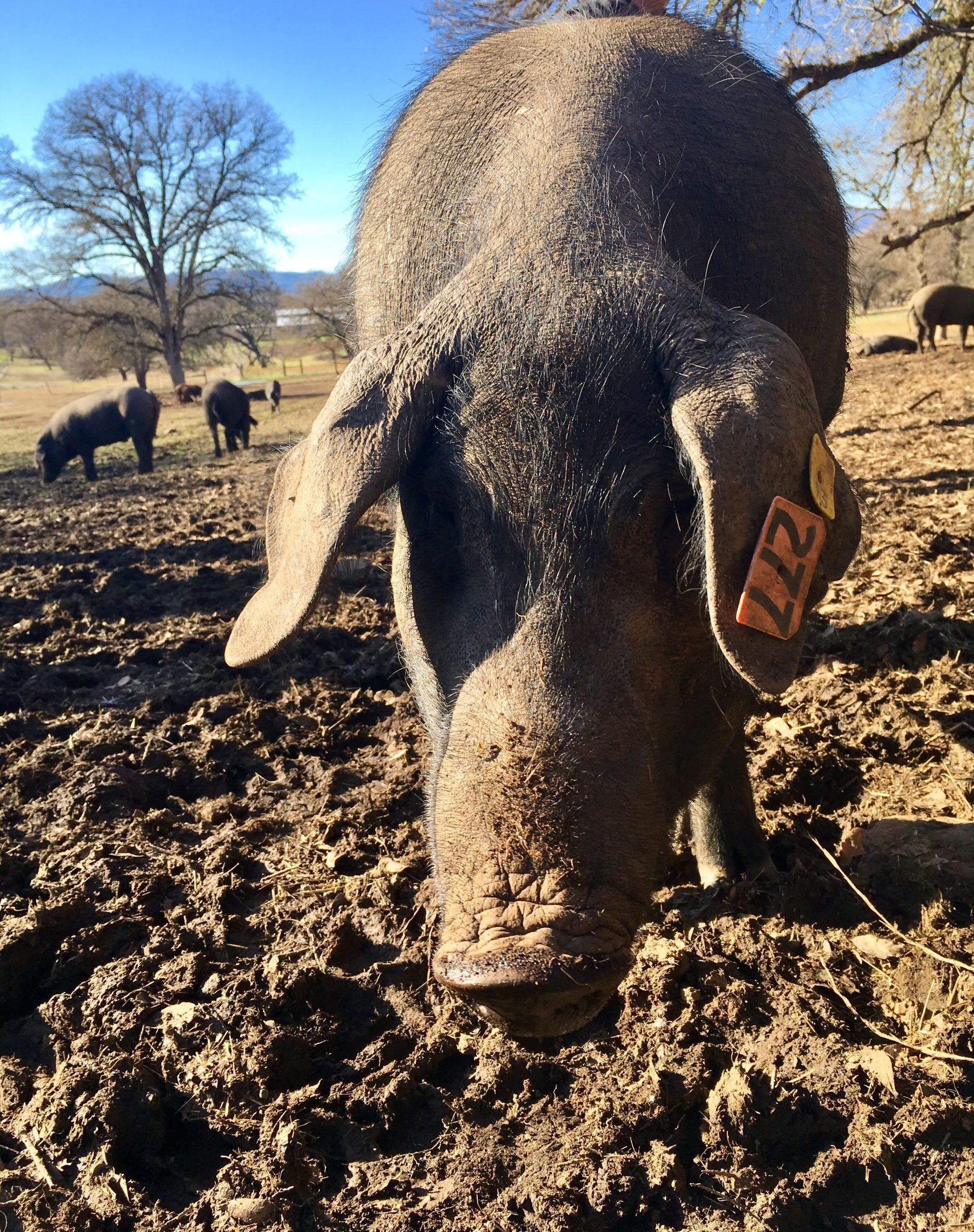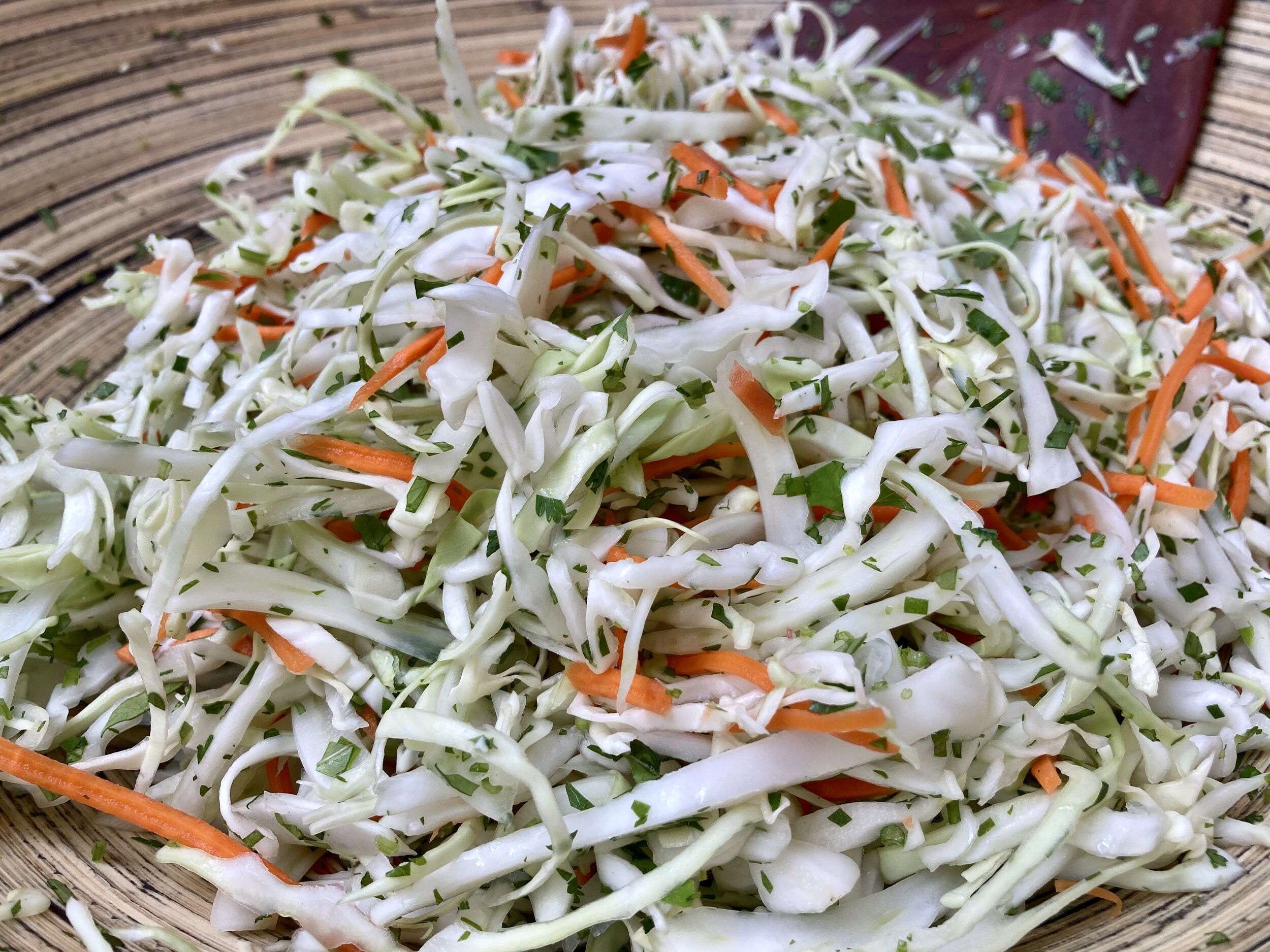Iberico Pigs Are Coming to California
Bay Area Pork-lovers, rejoice!
Great news, pork lovers. The crown jewel of Spanish gastronomy, the famed pata negra pig, has snuffled its way to California.
If you’ve been to Spain (or a good Spanish restaurant), you’ve probably run across jamón ibérico de bellota: mind-blowingly delicious, salt-cured hams from acorn-finished, free-range Iberico pigs. It’s magical stuff. The black-footed Iberico breed of pig is naturally prone to developing intramuscular fat (marbling), which means even the leanest cuts of meat stay super tender and succulent.
When you turn these pigs loose in an oak forest, they can put away 15 or 20 pounds of acorns every single day, and by some accounts double their weight in just three or four months of unbridled gluttony. Fortunately, acorns are a great source of monounsaturated fats, just like olives. People in Spain actually call the acorn-finished Iberico pigs “olives with legs.” That basically makes their fat-streaked ham a health food, right?
Acorn-finished Iberico ham – like the fresh cuts and sausages made from the other parts of the animal – is sumptuous, profound, and nothing like the pale, leathery stuff we see in American supermarkets. On fresh cuts, the meat is deeply colored and flavored, with an almost beefy richness. The abundant fat is sweet and nutty and firm to the touch (the texture makes me think of hamachi sashimi), but it melts in your mouth like butter. You almost don’t need to chew.
And now, thanks to two crazy pork-loving entrepreneurs, San Francisco Bay Area residents can buy fresh Iberico pork straight from the local oak forest.
Encina Farms was founded in 2019 by Alberto Soliz and Helmut Drews. Through persistence, good connections and a bit of luck, they managed to score a few dozen purebred Iberico pigs and find an idyllic property to lease in Lake County (just north of Napa Valley) that’s loaded with oak trees, rich with natural water sources, and owned by people who value traditionally raised livestock.
Encina’s Iberico breed pigs roam freely 24/7 in certified organic pastures most of the year, and from August to December (acorn season, known in the jamón world as the montanera), they gorge themselves under the wild oak trees neighboring the pasture. Mature shrub oak, valley oak, blue oak, and live oak trees give the pigs plenty of oleic fatty acids to gobble up at will. Alberto says that tests a Spanish lab ran on these acorns confirmed they have exactly the same nutritional profile as the acorns over there.
The first Encina Farms pork hit the Napa Farmers Market in late November 2019, and met with rave reviews from the local chefs who picked some up to cook at home. The ribs, chops, tenderloin, cheeks, bacon, fresh chorizo and Catalan botifarra sausages (YES! Exactly the ones you need for the Hedonism Eats Barcelona dinner party book!) were flying off the stand. Sadly, there’s no Encina Farms jamón yet, but they’ll be starting that years-long process with the 2020 acorn season, in consultation with experts from Spain.
As of January 2020, the Saturday morning Napa Farmers Market is still the best place to buy Encina Farms pork. You’re getting it directly from Helmut and Alberto, and can hear their story and experience firsthand. So far, the only retail stores that carry their pork are Bi-Rite (in San Francisco) and Fatted Calf . . . but availability is super limited (CALL FIRST TO CONFIRM). If you don’t mind dining in a three-star Michelin restaurant, Alberto says you can taste the finished product at Quince and the Restaurant at Meadowood. (APRIL 2020 Update: Encina Farms now has an online store! Here!)
I’m not going to lie, this pork isn’t cheap. But there’s a good reason for the premium pricing. Iberico pigs only have two litters per year (industrial pork has nearly three), with half the number of piglets than standard pigs. The animals also take more than twice as long to reach maturity. That makes the meat six times more precious than standard pork that sells at $4/pound. When you factor in their free-range organic pastures, heart-healthy acorn finishing, and Kobe beef-level marbling, the pricing suddenly makes a lot more sense.
And when you taste the difference, you’ll see it’s well worth it.














